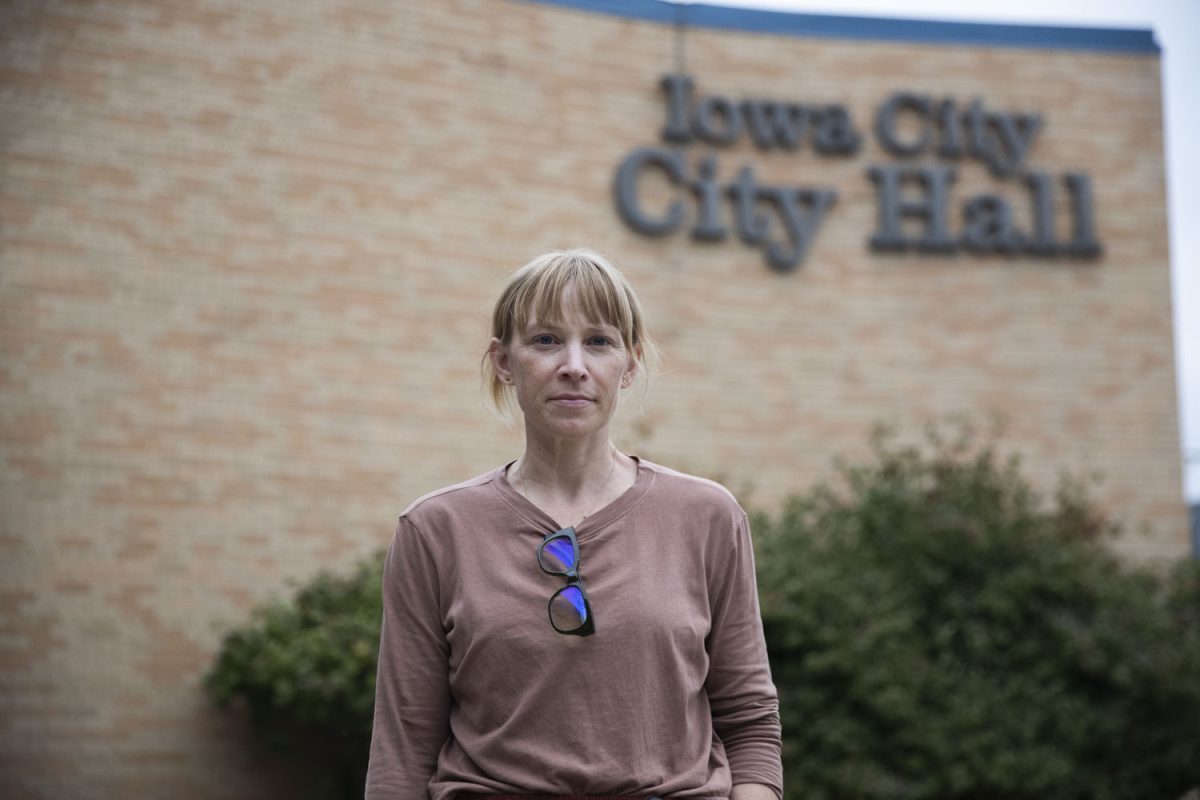City of Iowa City officials are in the process of applying for a $5.6 million federal grant, which would be used to address various barriers to affordable housing in the community.
The city has identified certain barriers to more affordable housing in the city including zoning regulations, land use policies, the capacity of local development, and incomes that are low compared to the high costs of housing and construction.
By removing these barriers, the city would be able to develop more affordable housing, thus increasing supply and lowering the cost.
According to the Oct. 17 city council agenda, the grant, called Pathways to Removing Obstacles to Housing, is from the U.S. Department of Housing and Urban Development.
On top of the $5.6 million grant, the city also plans to commit $2.85 million to the planned projects to show they are committed to the cause and to give them a leg up over other cities that are applying, said Kirk Lehmann, the city’s associate planner. He said this grant is competitive, as it will only be awarded to 20 cities in the nation.
The 10 total projects the city plans to complete with the combined $8.45 million are split into three categories: planning-related activities, housing-related activities, and administration-related activities.
The planning-related activities include three different studies to identify what city regulations and standards should be changed to accommodate more housing growth. These standards include parking regulations and the city’s comprehensive plan.
Other actions under this category will evaluate the area’s housing market to identify the region’s housing needs and shortcomings, rezone the city to allow increased density and look at the feasibility of creating a city department that will solely undertake affordable housing projects. This category would spend a total of $650,000 of the grant.
The second category, housing-related activities, would spend the majority of the grant, totaling $7.25 million. Two of the proposed projects in this category would create new programs in the city.
One program would provide financial assistance to property owners to incentivize the construction of accessory dwelling units, also known as in-law suites. The other would offer temporary financial assistance in the form of security deposits or short-term rent assistance to help those at risk of being unhoused.
The last two projects in the second category would construct 24 affordable dwelling units and offer counseling to lower-income households to help them make smart financial decisions, improve their financial stability, and educate them about fair housing practices to help mitigate housing discrimination.
The third category, administration-related activities, has one project that would cost $550,000. This project would fund a full-time position to manage the funds of this grant and oversee the activities.
The city is taking steps to address the issue of housing affordability in Iowa City by amending city regulations regarding design and zoning to help increase housing supply. At its next meeting on Nov. 6, the city council will also vote on proposed changes to the city’s regulations surrounding accessory dwelling units as another way to increase supply.
At the Oct. 17 city council meeting, Anne Russett, the city’s senior planner, said these amendments show the city is actively pursuing solutions to its expensive housing market, which could help give the city an advantage over other cities applying for the grant.
At the meeting, several city councilors expressed their gratitude toward city staff for applying to this opportunity.
“I think it’s a great opportunity,” Iowa City Mayor Bruce Teague said. “I hope we get the funding to do this.”
Iowa City City Councilor Laura Bergus said this opportunity would be positive not only for Iowa City but also for surrounding communities who could benefit from the various programs and studies.
Lehmann said it is unknown when the city will be notified if they have been awarded the grant or not. The deadline to file the grant application is Nov. 6.
The U.S. Department of Housing and Urban Development has stipulations around the projects’ timeline. Projects must begin before Sept. 30, 2026, and be finished by Sept. 30, 2029. The agenda states some activities can begin as soon as funding is awarded, but some will have to wait for the completion of prerequisite work.



